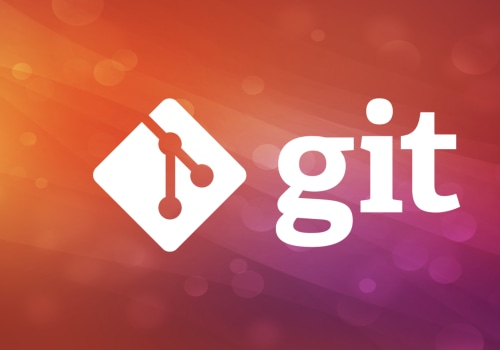Do you want to learn the basics of coding fundamentals control flow, syntax and data types? Knowing how to work with variables is one of the most fundamental concepts in coding. Variables are incredibly powerful tools that allow coders to create dynamic programs and systems, but they can be difficult to understand. If you need help understanding coding fundamentals control flow, syntax and data types, consider looking for profs online python tutors who can provide guidance and support with coding fundamentals control flow, syntax and data types. In this article, we'll provide an overview of what variables are and how they can be used in coding fundamentals control flow, syntax and data types. We'll cover the different types of variables, how to declare and assign values to them, and how to use them in different programming languages. Do you want to learn the basics of coding fundamentals control flow, syntax and data types? Knowing how to work with variables is one of the most fundamental concepts in coding. Variables are incredibly powerful tools that allow coders to create dynamic programs and systems, but they can be difficult to understand. If you need help understanding coding fundamentals control flow, syntax and data types, consider looking for profs online python tutors who can provide guidance and support with coding fundamentals control flow, syntax and data types. In this article, we'll provide an overview of what variables are and how they can be used in coding fundamentals control flow, syntax and data types. We'll cover the different types of variables, how to declare and assign values to them, and how to use them in different programming languages. , syntax and data types? Knowing how to work with variables is one of the most fundamental concepts in coding. Variables are incredibly powerful tools that allow coders to create dynamic programs and systems, but they can be difficult to understand. If you need help understanding coding fundamentals control flow, syntax and data types, consider looking for profs online python tutors who can provide guidance and support with coding fundamentals control flow, syntax and data types. In this article, we'll provide an overview of what variables are and how they can be used in coding fundamentals control flow, syntax and data types. We'll cover the different types of variables, how to declare and assign values to them, and how to use them in different programming languages. Do you want to learn the basics of coding fundamentals control flow, syntax and data types? Knowing how to work with variables is one of the most fundamental concepts in coding. Variables are incredibly powerful tools that allow coders to create dynamic programs and systems, but they can be difficult to understand. If you need help understanding coding fundamentals control flow, syntax and data types, consider looking for profs online python tutors who can provide guidance and support with coding fundamentals control flow, syntax and data types. In this article, we'll provide an overview of what variables are and how they can be used in coding fundamentals control flow, syntax and data types. We'll cover the different types of variables, how to declare and assign values to them, and how to use them in different programming languages.
With this knowledge, you'll be able to confidently use coding fundamentals syntax and data types in your own coding projects. Additionally, this article has highlighted the importance of understanding coding fundamentals data types and how they relate to variables. With this knowledge, you'll be able to confidently use coding fundamentals syntax and data types in your own coding projects. Additionally, this article has highlighted the importance of understanding coding fundamentals data types and how they relate to variables. and data types in your own coding projects. Additionally, this article has highlighted the importance of understanding coding fundamentals data types and how they relate to variables. With this knowledge, you'll be able to confidently use coding fundamentals syntax and data types in your own coding projects. Additionally, this article has highlighted the importance of understanding coding fundamentals data types and how they relate to variables.
Conclusion
This article has provided an overview of variables and how they are used in coding fundamentals data types. Variables are an essential part of coding, and understanding how they work can be the difference between success and failure. Variables are used to store data and to help organize code, making it easier to read and understand. They can also be used to perform operations on data, making coding more efficient.Understanding how to use variables correctly is a key component of coding fundamentals and will help coders create effective, efficient programs.
Declaring Variables
Declaring a variable is the first step in using a variable. It is the process of creating a named memory space that can store values. To declare a variable, a keyword is used, which varies depending on the language being used.In C, C++, and Java, the keyword 'int' is used to declare an integer, while in Python the keyword 'var' is used. The syntax for declaring a variable may also differ between languages. For example, in C, C++, and Java, variables must be declared with a data type before their name. For instance, an integer would be declared as 'int x;'.
In Python, however, variables are declared by simply typing out their name and assigning them a value. For instance, an integer would be declared as 'x = 0'.It is important to remember that different languages have different rules and syntax for declaring variables. Knowing the syntax of the language being used is essential for writing code correctly.
The Benefits of Using Variables
Using variables is a key part of any coding fundamentals. By utilizing variables, code can be made more efficient, easier to read, and more maintainable.This is because variables allow for the reuse of values in code, instead of having to re-enter them each time. This makes the code easier to understand, modify and debug. Additionally, variables can also reduce the amount of code needed for a task, making it more efficient. The use of variables also makes code easier to read. When a variable is used instead of an explicit value, the code becomes more human-readable.
This makes it easier for other developers to understand and make changes to the code. It also reduces errors, since the variable can easily be changed in one place instead of having to search through multiple lines of code. Finally, variables make code more maintainable. By using variables instead of hard-coding values, it becomes much easier to keep track of changes and update the code when necessary. Furthermore, it makes it easier to refactor code when needed.
This helps ensure that code remains organized and consistent over time. Variables are an integral part of coding fundamentals, and having a strong understanding of how they work can help you write better code. This article has provided an introduction to variables, explaining what they are, how they are used, and why they are important. It has also discussed the different types of variables and best practices for naming them. Additionally, it has outlined topics like mutability and typecasting which can be used to improve your code.
By mastering the fundamentals of variables, you can ensure that your code is robust, efficient, and secure.











